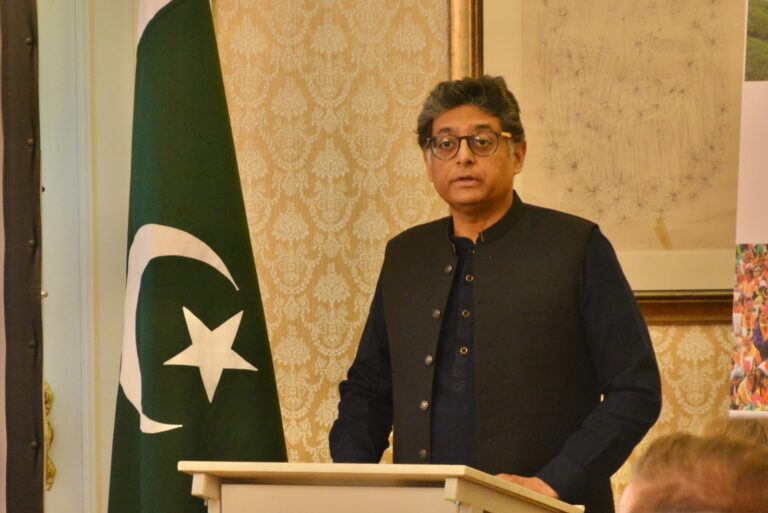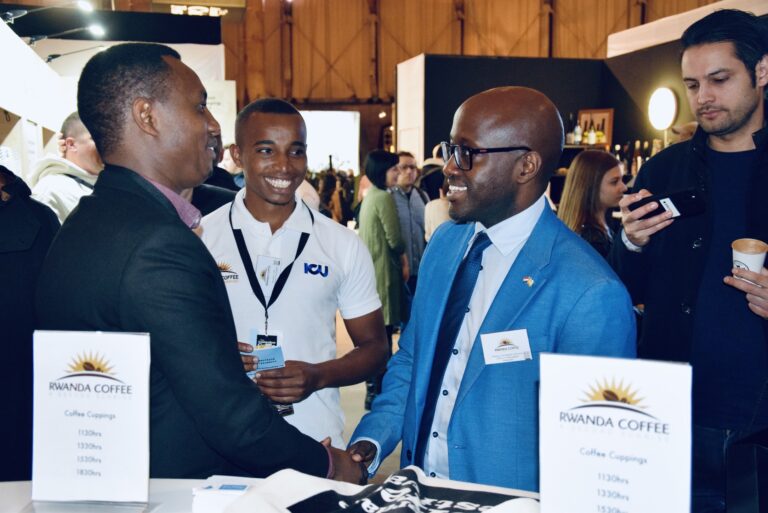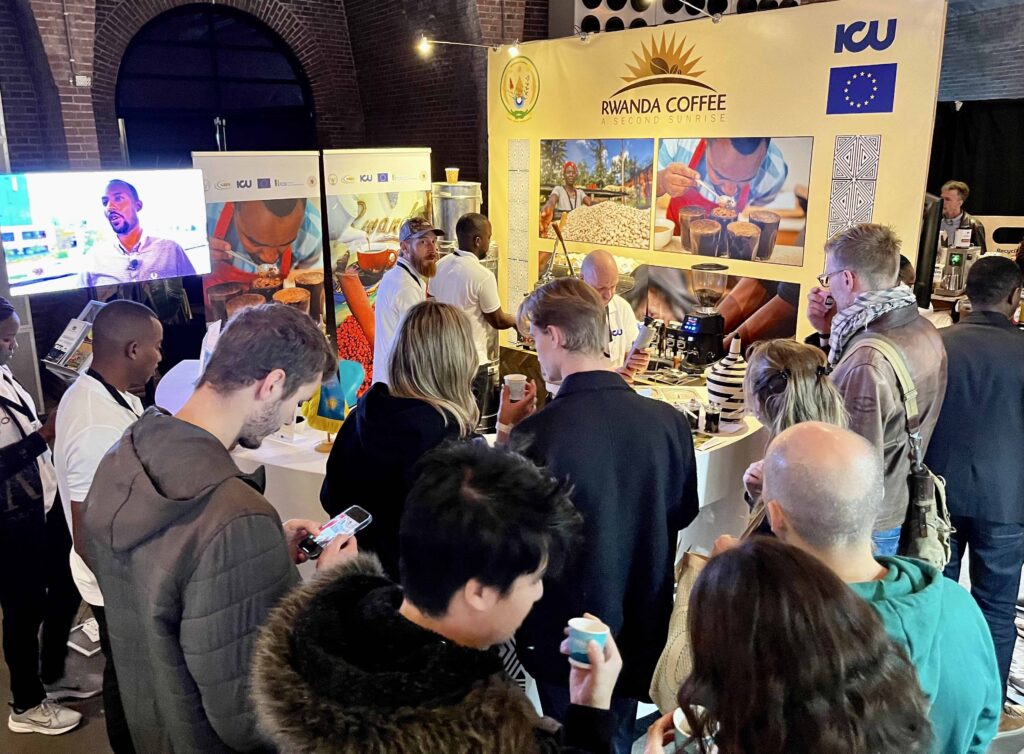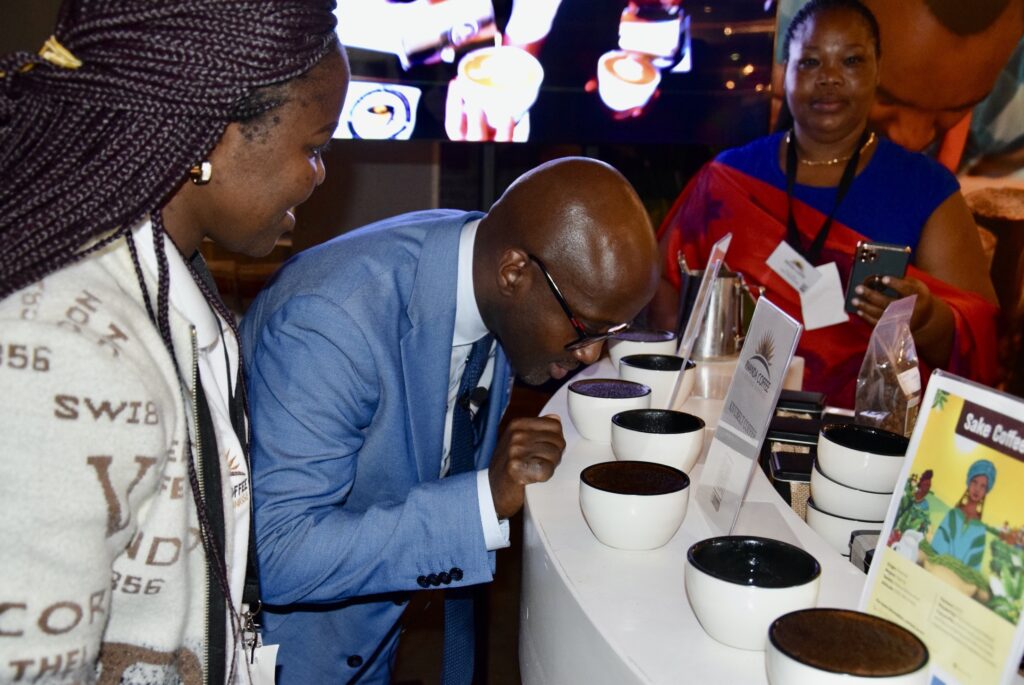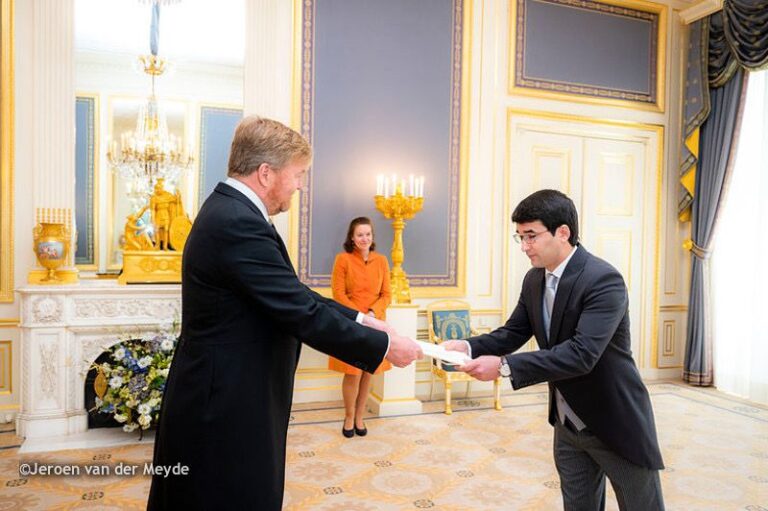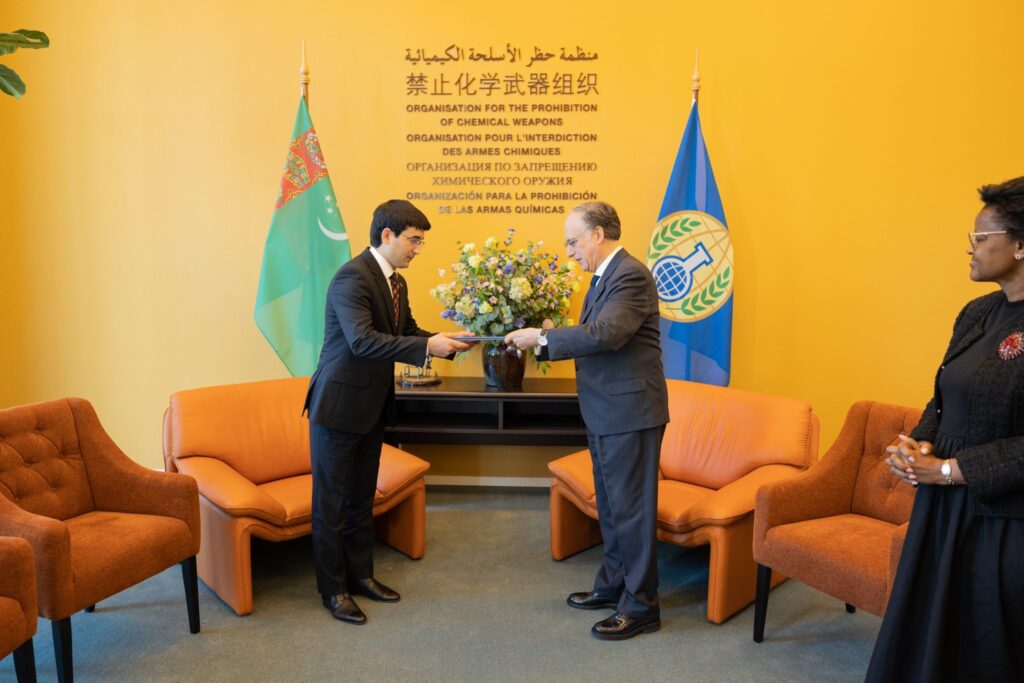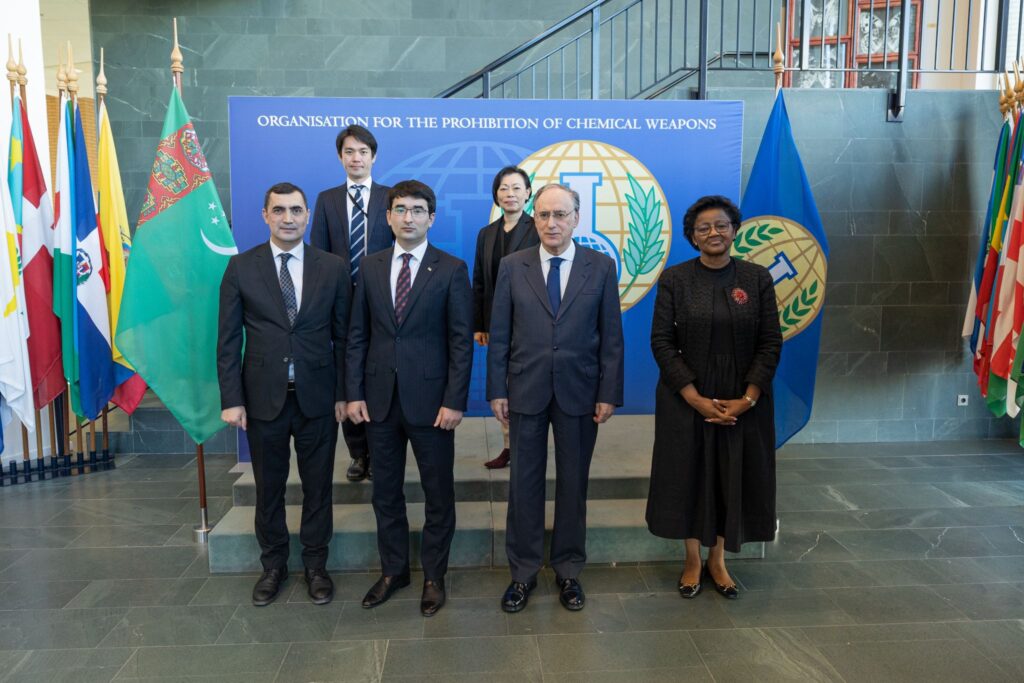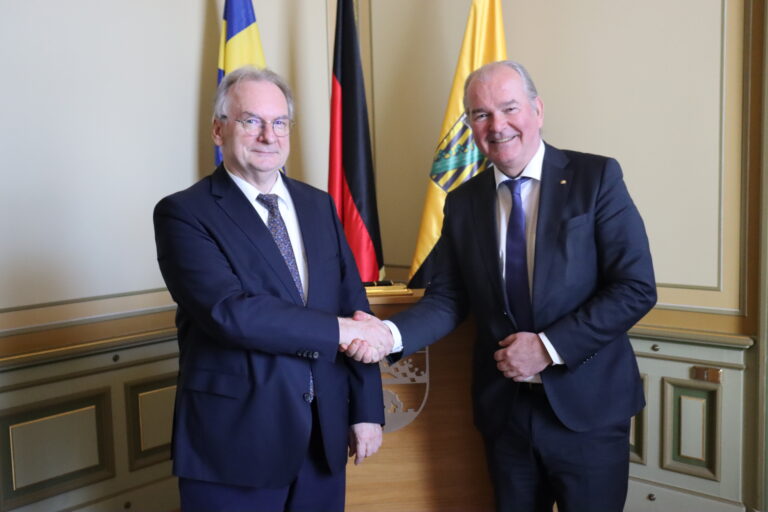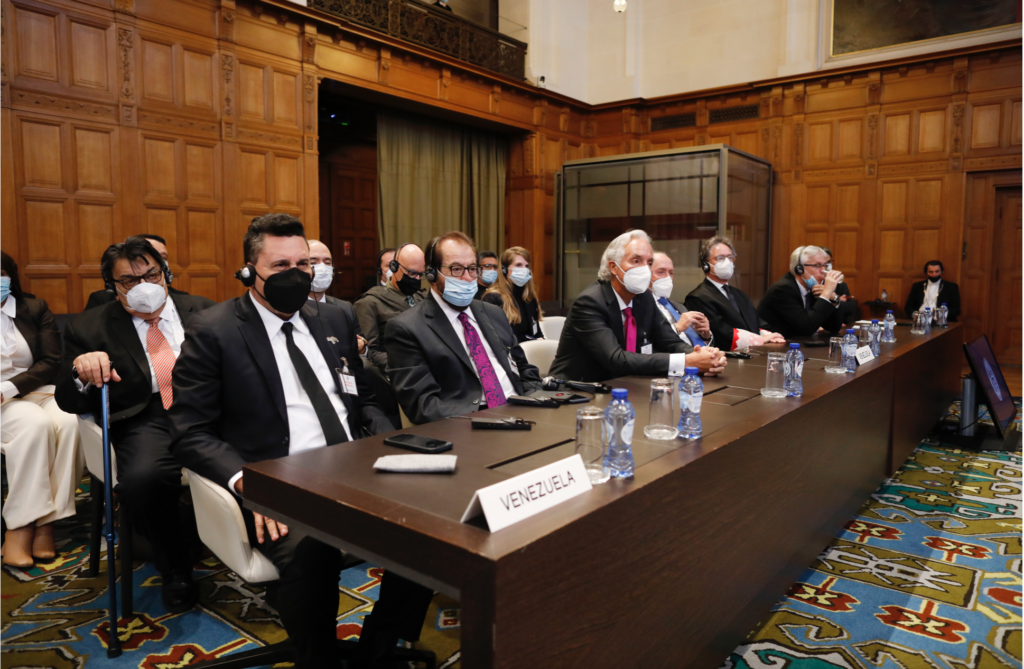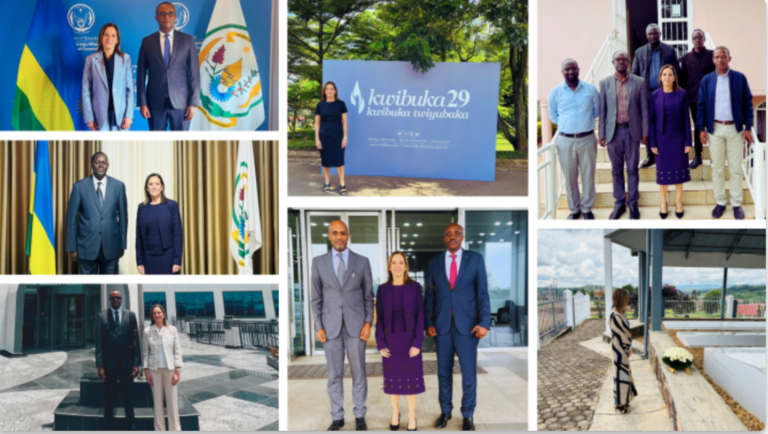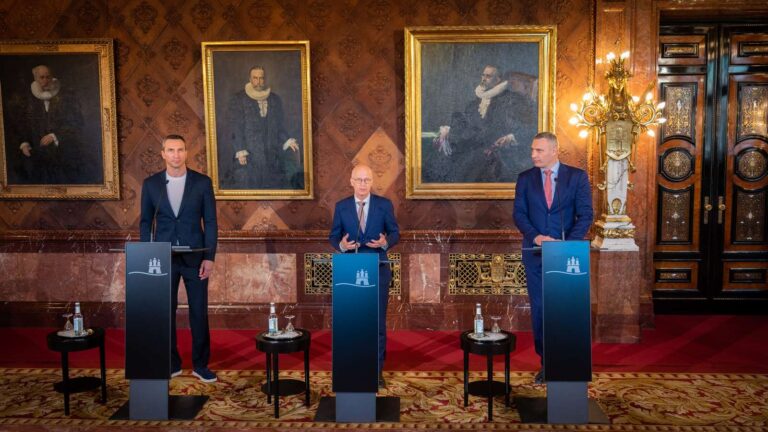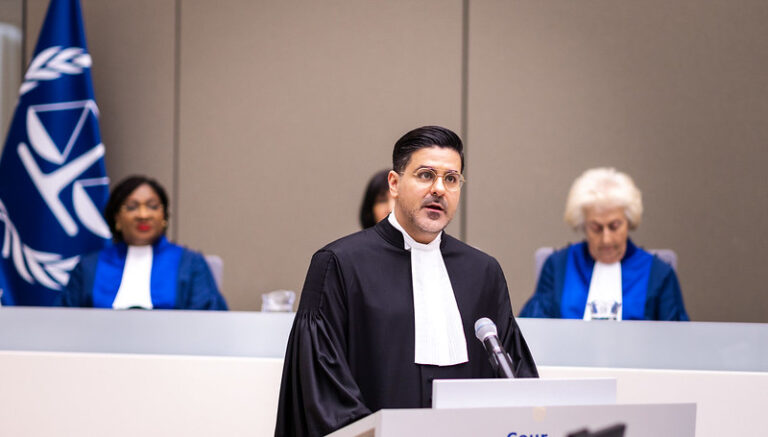By Roy Lie Atjam
The Embassy of the Republic of Pakistan in the Netherlands organized the Explore Pakistan Tourism with the idea to present Pakistan’s multifaceted tourism potential to the Dutch travel industry at Pakistan House The Hague on 27 March 2023.
H.E. Mr Suljul Mustansar Tarar, Ambassador of Pakistan, Wiko van Rooijen, explorer, writer, adventurer and Jimmy Nelson, author of the innovatory book Before They Pass Away, photographer, artist and history teller, took the audience on a journey to the hidden gems of Pakistan.
The event was attended by leading tourism companies, media and representatives of airlines, PUM and VvKR – an association of 450 travel specialists.
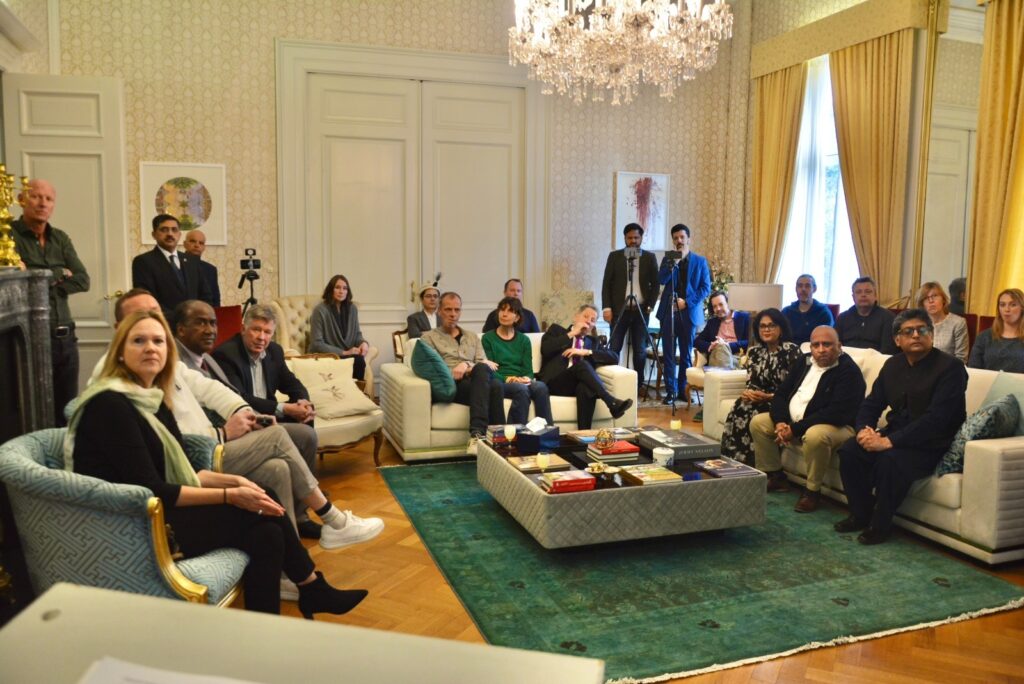
Mr. Jimmy Nelson, world renowned visual storyteller, and Mr. Wilco van Rooijen famous Dutch climber, shared their experiences with the Dutch participants from travels in Pakistan. The Managing Director (MD) of Pakistan Tourism Development Corporation (PTDC) Mr. Aftab ur Rehman Rana gave a detailed presentation on different types of tourism options Pakistan holds and also investment opportunities in the sector.
Ambassador Mr. Suljuk Mustansar Tarar welcomed the participants and discussed why Pakistan should be a choice for tourists from the Netherlands. Ambassador Tarar mentioned how those with interest in history and civilization could go to see places at the heart of Indus valley civilization, Budhism or where Alexander the great had fought his famous battle. Tourists with interest in geography and landscape could visit deserts or plains and trekking or mountaineering aficionados could visit the Northern areas of Pakistan with some of the highest mountains and plains and largest snow mass outside the polar regions. And those with interest in cultural or religious sites could visit sacred sites of Sikhism or Sufi shrines across Pakistan. He also mentioned Pakistan as a business destination for investment in hospitality industry.
The audience were shown different thematic videos on range of landscape and cultural heritage of Pakistan.
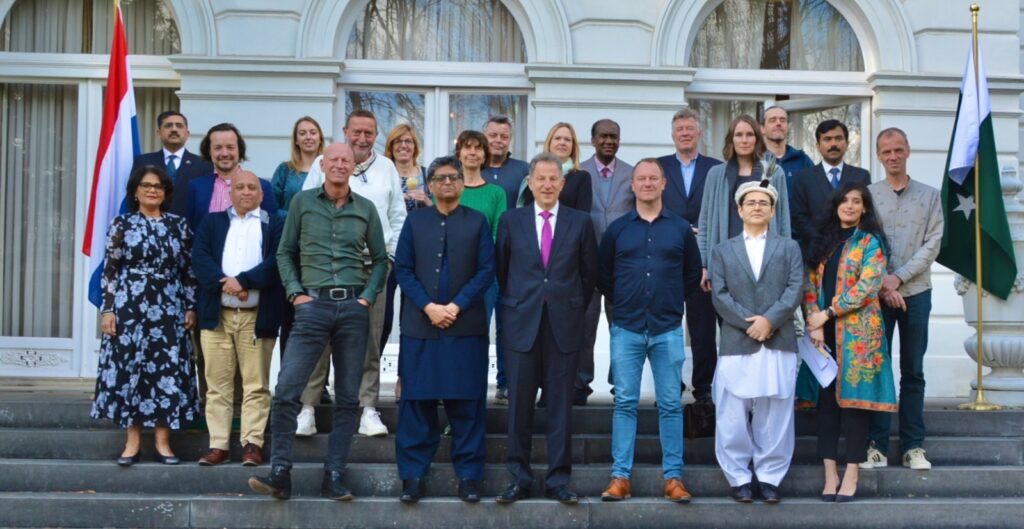
Mr Jimmy Nelson’s animated presentation was full of vigour and spirit. Mr. Nelson narrates his journeys through indigenous cultures and lives through the lens of his camera. He has compiled three books of photography and stories including ‘Before They Pass Away’ and ‘Homage To Humanity,’ each a masterpiece. His work is also displayed as photo and immersive exhibitions in different parts of the world. Mr. Jimmy Nelson in a TED-Talk style presentation to the audience called Pakistan among the most beautiful destinations in the world. Pakistan was one of his first destinations as a young adventurer and photographer and he also visited the country recently. Mr. Nelson is currently planning his next project.
Mr. Wilco van Rooijen is the first and the only Dutch climber who has completed the Explorers Grand Slam, having summitted the 7 highest peaks in all continents and the poles. Mr. Wilco undertook an expedition to K2. He has authored a book “Surviving K2” on his experiences in Pakistan, which has been published both in English and Dutch. He was traveling and sent a passionate video message encouraging Dutch travelers to explore Pakistan. Mr. Wilco praised Pakistan, its people and culture. He considered it ‘a life-changing event’ and endorsed to audience that they should travel to Pakistan if they want to experience something different.
Pakistani mountaineer Mr. Shehroze Kashif who holds the Guinness World Records of being the youngest Mountaineer to summit K2, was also scheduled to virtually join but could not due to his ongoing expedition to Annapurna in Nepal.
Mr. Aftab ur Rehman Rana MD PTDC said that Pakistan has got a unique geographic location with natural diversity, ranging from sea shore to the world tallest mountains. It is a meeting places of great mountain ranges e.g. Hindukush, Himalayas and Karakorum all meet in the North of Pakistan. He also covered the adventure tourism emerging in Pakistan e.g. for paragliding or as part of traditional silk route. In terms of bio-diversity there are nine eco-regions in the country. He also highlighted efforts made by the government to promote tourism including through online visa facility for residents of many countries including the Netherlands.
The presentations were followed by a Q&A session. The Dutch tour operators expressed keen interest in knowing more about tourism opportunities in Pakistan. Some of them shared that they have started group bookings for Pakistan. Ambassador Tarar thanked the speakers and participants and assured them of Pakistan Embassy’s assistance to facilitate their travel to Pakistan.
Pakistan Embassy the Netherlands is actively promoting tourism opportunities offered by Pakistan and the event was part of such efforts. The inspirational evening concluded with a Pakistani dinner buffet.

